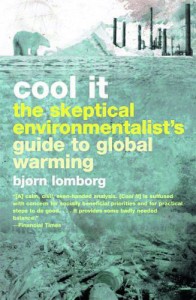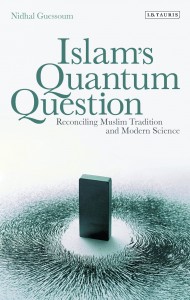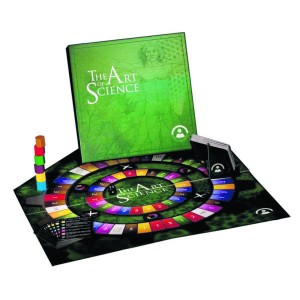MONDAY, 3 OCTOBER 2011
Reading any discussion of man-made global warming in the popular press is a dispiriting experience. The impression is of conflicting termite nests of bad faith, demagoguery and hysteria. Lomborg’s Cool It brings clarity, making the book an important one to read.What Lomborg does in Cool It is very straightforward. He lays out what our current best estimates on the effects of global warming are (as reported in the IPCC and topline journals), and how they differ from common perception. For instance, Al Gore claims that water levels will rise 20 feet over the next century, the IPCC says 1 foot. Lomborg then asks what can be achieved, and how it can best be achieved, with the resources available. His analyses draw on several Nobel Prize laureates and representatives from the world’s poorest nations, to reach a consensus about which steps can save the most lives per dollar spent.
We live in a time when the obvious is controversial. There have been several harsh attacks on Lomborg’s work but what is remarkable is the paranoid and hectoring tone in which they are written. Lomborg does us all a great service in dragging this discussion back to the realms of the proven and the rational. Hugo Schmidt
Islam’s Quantum Question - Nidhal Guessoum
the relationship between Islam and science is a curious one: sometimes, peaceful symbiosis; other times, outright conflict; but predominantly a worrying indifference and a lack of understanding. In Islam’s Quantum Question, Nidhal Guessoum, an astrophysicist and a devout Muslim, attempts to explain why. Unlike most Christian thinkers, Muslims have been slow to integrate scientific findings into a theistic worldview: in Muslim countries, such as Egypt and Pakistan, only around fifteen per cent of the population believes in Darwinian evolution. Guessoum decries a lack of understanding of the basic philosophies and methodologies of science throughout the Muslim world. He also charts the alarming growth of I’jaz, the academic attempt to find miraculous scientific content within the Qur’an (such as verses which predict the speed of light or the amount of iron in the solar system). This is followed by four detailed chapters confronting some of the main topics in the science and religion arena: cosmology, design, the anthropic principle and evolution. In each, Guessoum proceeds to sketch the Muslim attitudes towards these ideas and present his proposals for a way forward. Guessoum is forthright in his criticisms and practical in his suggestions. Islam’s Quantum Question is thoroughly researched, meticulously footnoted and clearly presented. These careful preparations help him to assert his belief, as advocated by Averroes nearly a millennium before him, that Islam and science are entirely compatible. Tim Middleton
The Art of Science - Acabo Games Ltd
Do you always go for the science and nature category in trivial pursuit, but perhaps struggle with the art or sports questions? If so, The Art of Science is the game for you. A challenging science and technology based trivia game aimed at students and academics. It has a similar format to most trivia games, based on cards with questions in six categories: Biology, Chemistry, Physics, Mathematics, Technology and Miscellaneous (questions on any topic but with a strange preference for the Olympic games). The Art of Science sets itself apart by allowing the player to choose how many points you need to get for each topic, meaning that scientists from all disciplines can play one another on an even playing field. The points system also means you can easily vary the game length from a quick game to an epic battle of knowledge.
The questions make the game. Not only are there loads of them, but they also cover a great range of difficulties. There are some which are a tad easy—in computer technology, what does www stand for?—but others are more challenging—what is the Runge-Kutta method an example of? In contrast, the rules can be very confusing and don’t really explain how to play the game—they try to be too clever and quirky. That said, overall, it is an excellent game for science fans. Jessica Robinson
The Art of Science - Acabo Games Ltd
do you always go for the science and nature category in trivial pursuit, but perhaps struggle with the art or sports questions? If so, The Art of Science is the game for you. A challenging science and technology based trivia game aimed at students and academics. It has a similar format to most trivia games, based on cards with questions in six categories: Biology, Chemistry, Physics, Mathematics, Technology and Miscellaneous (questions on any topic but with a strange preference for the Olympic games). The Art of Science sets itself apart by allowing the player to choose how many points you need to get for each topic, meaning that scientists from all disciplines can play one another on an even playing field. The points system also means you can easily vary the game length from a quick game to an epic battle of knowledge.
The questions make the game. Not only are there loads of them, but they also cover a great range of difficulties. There are some which are a tad easy—in computer technology, what does www stand for?—but others are more challenging—what is the Runge-Kutta method an example of? In contrast, the rules can be very confusing and don’t really explain how to play the game—they try to be too clever and quirky. That said, overall, it is an excellent game for science fans. jr



